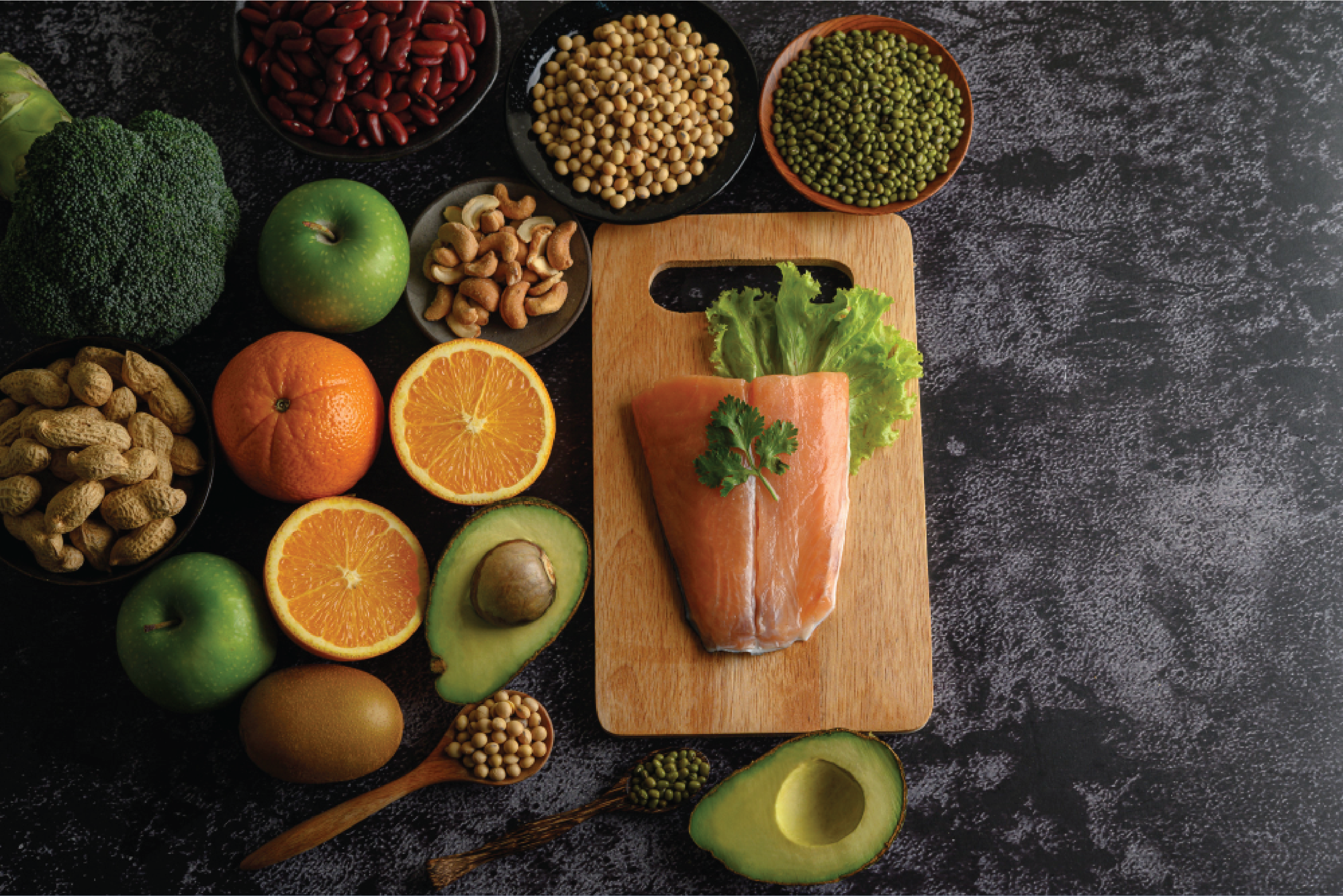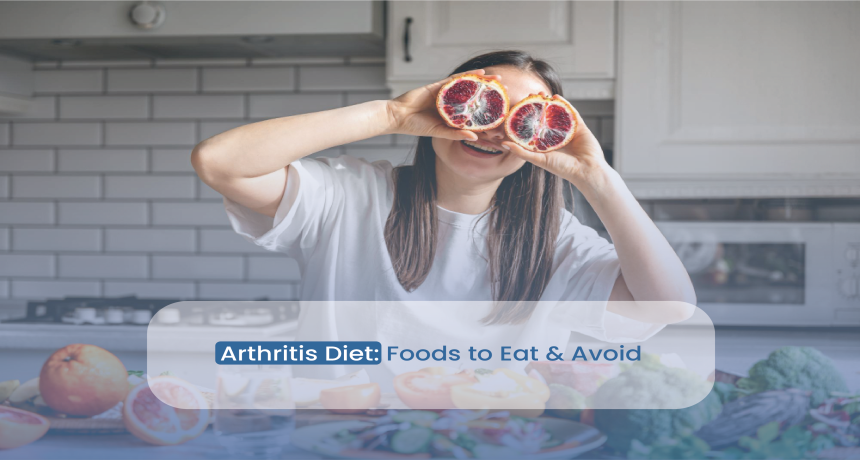Arthritis Diet: Foods to Eat & Avoid
2025-09-07 Arthritis is a chronic condition that affects millions of people globally and can cause joint pain, stiffness, swelling, and limited motion. Managing your arthritis doesn’t just involve medications, physical therapy, and exercise; your diet is important, too. Food can reduce inflammation, decrease symptoms, and knowing what food to eat, or abstain from eating, can change your quality of life drastically. That is what this article will provide. In this article, we will help you understand the best arthritis diet, what foods you should avoid, and how to create your own arthritis diet chart. Arthritis is not just one disease; it's a name for over 100 different joint diseases, including rheumatoid arthritis (RA), osteoarthritis (OA), psoriatic arthritis, and gout. The causes differ, but there is one commonality: many types of arthritis are inflammatory in nature, especially the autoimmune types like RA. This is where an anti-inflammatory diet for arthritis comes into play. Some foods reduce inflammation, build bone, and energize the immune system, while other foods increase inflammation and result in painful arthritis flares. Consuming a balanced diet that emphasizes anti-inflammatory and antioxidant-rich foods may help alleviate pain and other symptoms associated with arthritis. Here are two main takeaways: Fatty fish (salmon, mackerel, sardines, trout) are good sources of omega-3 fatty acids, which are known to decrease inflammation and joint stiffness. Benefit: Reduce joint pain and morning stiffness related to RA. Tip: Try to eat fatty fish at least two times a week. The brighter the fruit and vegetable, the more antioxidants they contain (vitamin C, beta-carotene, flavonoids), which all help alleviate oxidative stress and inflammation. Best choices: Berries, oranges, spinach, kale, broccoli, and bell peppers. Tip: Aim to fill half your plate with fruits and veggies at every meal. Whole grains (including brown rice, oats, quinoa, and barley) have more fiber and nutrients than refined grains. Potential benefit: Foods that are high in fiber may reduce C-reactive protein (CRP), a marker of inflammation. Avoid: white bread, white rice, and sugary cereals. Almonds, walnuts, flaxseeds, and chia seeds are great sources of healthy fats, fiber, and plant-based protein. Potential benefit: reduce inflammation and promote heart health and joint health. Advice: just a small handful a day, nuts are energy-dense. Beans, lentils, and peas are high in protein, fiber, and anti-inflammatory properties. Potential benefit: particularly good for anyone who is reducing meat consumption. Best options: black beans, chickpeas, kidney beans, and lentils. Extra virgin olive oil contains oleocanthal, which has anti-inflammatory properties that are very similar to ibuprofen. Tip - Use as a salad dressing or sauté lightly. This drink is a source of polyphenols and epigallocatechin-3-gallate (EGCG), an antioxidant that may slow cartilage damage and inflammation. Tip - Drink 1–2 cups a day to get the maximum benefits. As there are foods that can reduce inflammation, there are also foods that can trigger arthritis symptoms and increase joint pain. Here are a few key foods you may want to avoid: Red meat, especially that processed like bacon and sausage, harbors high amounts of saturated fats and advanced glycation end products (AGEs) (the byproduct of processed and cooked foods), which can enhance inflammation. Refined carbohydrates such as white bread and pastries, sweetened beverages like soda, and sugary desserts invoke a spike in blood sugar, which can create additional inflammation. Tip - Switch out refined carbohydrates for whole grains and fresh fruits if possible. Foods such as fried chicken, French fries, and similar types of foods contain trans fats and AGEs, which cause oxidative stress. Various people with arthritis have mentioned that dairy increases their symptoms, and full-fat milk, cheese, and butter can increase inflammation in some people. Alternative: Consider trying a plant-based milk (almond or oat milk) if you think you may react to dairy. Too much alcohol can raise uric acid levels, which is problematic in patients with gout and is associated with systemic inflammation. Limit: One drink per day for women and two for men. Too much salt can cause inflammation and water retention, which can amplify pain with arthritis. Read labels: Canned soup, snacks, and processed meats typically have excessive sodium levels. An anti-inflammatory arthritis diet emphasizes whole foods and power-packed nutrition to gain relief from joint pain and stiffness. Here’s a sample day: An arthritis-friendly meal plan Breakfast: Oatmeal topped with berries and chia seeds, and green tea. Snack: A small handful of walnuts. Lunch: Grilled salmon, with quinoa and steamed broccoli drizzled with olive oil. Snack: Carrot sticks with hummus. Dinner: Lentil Soup with whole-grain bread, and a side salad. Dessert (optional): A square of dark chocolate (70% cocoa or higher). Here’s a simple arthritis diet chart you can follow for a balanced week: Stay hydrated: Water helps eliminate toxins and is necessary for joints to work well. Maintain a healthy weight: Extra weight puts extra stress on your joints, especially knees and hips. Cook instead of eating out: You get to control the ingredients and avoid added sugars and added salts. Keep track of when you have symptoms: Keep a food diary of sorts to see if there are possible trigger foods. An arthritis diet is not a cure, but along with the best arthritis treatment in Delhi, it can have a profound impact on the severity of symptoms and the overall state of your health. By following an anti-inflammatory diet for arthritis and avoiding flare-up foods, you can regain some control of your symptoms. And remember; everyone responds differently to food. Start by making small changes and assessing how your body reacts. Then, with the right diet and guidance from a health and wellness clinic in Delhi, you may achieve relief from your symptoms of stiffness, pain, and fatigue in a most natural way!Understanding the Arthritis and Diet Connection
Best Diet for Rheumatoid Arthritis and Other Types

Fatty Fish
Fruits and Vegetables
Whole Grains
NUTS and SEEDS
LEGUMES
Olive Oil
Green Tea
Foods that Trigger Arthritis Flare-ups

Processed and Red Meat
Refined Carbs and Sugar
Fried and Fast Foods
Dairy Products
Alcohol
Salt and Preservatives
Anti-Inflammatory Diet for Arthritis

Sample Arthritis Diet Chart
Tips for Managing Arthritis Through Diet
Conclusion
.png)















